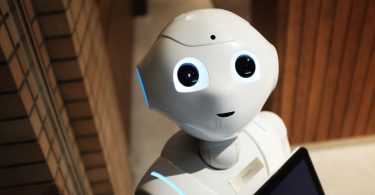If the book is to be regarded as man’s greatest gift to civilisation, then surely the printing press is one of man’s greatest inventions.
If the book is to be regarded as man’s greatest gift to civilisation, then surely the printing press is one of man’s greatest inventions. The publishing process has since remained fundamentally unchanged. That is until recently. This might be hard to take but books do have a shelf life and they will inevitably die out.
Maybe I’m being a little hyperbolic. Perhaps, but I think you should hear me out. The book isn’t the zenith of literature. It is merely a medium. Before the book, there was the tablet, the scroll, the codex, and of course before literature stories were told aurally. A book’s primary importance is after all its content, and ultimately it is insignificant whether a story is written in a book, manuscript or for that matter on the wall of a public toilet.
So what will replace the book? Well, just like many forms of art including music and movies the book has in the last half century or so transformed from an analog medium to a digital one. The e-book is by no means a recent idea. Bob Brown in the 1930s wrote a book entitled “The Readies” that argued reading should find a new medium to keep up with the newly invented “talkies” (movies with sound). His text wasn’t an accurate prediction, but his descriptions did come eerily close to today’s e-readers, depicting a machine that would help avoid paper cuts, save trees and even allow the reader to change type size.
So is the e-book the future? It would definitely appear so, as e-books grow in popularity, and even outsell books in certain cases; the book retailer amazon.co.uk, creator of the Kindle e-reader, recently disclosed that for every 100 books purchased on their website in 2012, they sold 114 e-books. Admittedly there still remains many who stubbornly refuse to accept e-readers and e-books, but why?
Here are three main arguments I believe are merely misconceptions.
Books are easier to read.
Though granted reading e-books on a mobile device or computer may cause eye strain, e-reader technology isn’t far off the printed page. E ink triton, the latest generation of e-reader display, allows e-readers, such as the Hanvon color eReader, to display 16 shades of grey and 4096 colours while remaining highly legible in bright lighting conditions. E-reader displays are close to being indistinguishable from the printed page, and unlike their book counterparts offer several advantages such as being able to change font, type size, and look up word definitions; surely these added benefits make reading easier right?
E-books create more piracy.
Admittedly e-books do make book piracy easier than ever before, though it would be wrong to assume that those who buy e-readers will irrevocably download all there books from then on illegally, or equally that e-books will spark off a global piracy epidemic. The publishing business isn’t going to fall apart in any case, just as the music industry hasn’t; Lil’ Wayne hasn’t resorted to pawning off his jewellery quite yet and equally libraries won’t be rushing to eBay and shutting shop. In fact this new literary revolution has generated more interest in literature, presented opportunities for smaller publishing companies, and given others the freedom to self-publish.
E-books don’t replicate the beauty of the printed page.
So how can you put a value on the smell of aged paper, the weight of a solid book of prose in your hands, or the pleasure of browsing and discovering books in the little corner store you often frequent? Today’s e-books certainly don’t replicate these aspects of the book well, but over time they have certainly got better; compare the original Kindle alongside the new LG flexible e-reader concept and you’ll notice the huge change in display quality. Ultimately this dilemma is not one of merit anyway as the purpose of a book is not to smell nice or look pretty. I’m sure in the past some preferred other mediums, but technological progression persisted, the medium changed, and so must it continue.
“But can’t they co-exist?” I hear you cry. Well certainly. I myself own vinyl and mp3s, books and e-books and I can’t imagine completely replacing my personal library overnight. Having said this, my minidiscs, cassette tapes, and VHS tapes were disposed of long ago. The book has undoubtedly been a mainstay of our society and has served us well but as Dylan famously said “the times they are a-changin” and its time we put down those tired old tree-killing books, and embraced a greener digital future, even if it means losing that pleasing musty smell.








